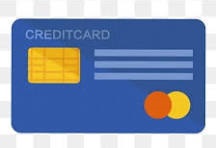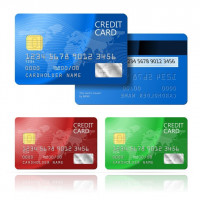Maximize Your Savings: Top Strategies for Shopping Smart on Feshop

Strong 8k brings an ultra-HD IPTV experience to your living room and your pocket.
Feshop is known for being a darknet marketplace offering compromised financial data such as stolen credit card details, fullz (full identity profiles), and bank logins. While the risks are high—both legally and financially—many still try to navigate it for perceived benefits. If you're among those already operating in this space, it’s essential to shop smart and minimize loss. This guide focuses on practical strategies for maximizing your savings while reducing your exposure to scams and bad purchases.
Disclaimer: This article is for educational purposes only and does not endorse illegal activities.
1. Start with Small Test Purchases
Never go all-in on your first transaction. Even if a vendor has glowing reviews, your safest move is to make a small test purchase first. This lets you verify if:
The product (e.g., credit card dump or CVV) is valid
The vendor delivers promptly
The data performs as promised
You’ll save more money in the long run by avoiding bulk scams from untested sellers.
2. Compare Prices Across Vendors
Different vendors may offer similar products at vastly different prices. For example, two sellers might list U.S.-based Visa cards, but one could be charging double. Make a habit of comparing listings, BINs (Bank Identification Numbers), and pricing before committing to a purchase.
Also, avoid falling for the “cheapest is best” trap—extremely low prices often indicate low-quality or outdated data.
3. Stick with Established Vendors
Reputation matters. Vendors with a long history, consistent ratings, and repeat buyers are generally more trustworthy than newcomers with no sales history.
To evaluate vendors:
Check how long they’ve been active
Look for consistent feedback over time (not just a few days)
Note if they respond to messages or disputes
It’s safer (and cheaper) in the long term to work with sellers who value their reputation.
4. Understand the Product Before Buying
There are different types of products on Feshop:
CVVs – Basic credit card info, sometimes outdated
Fullz – Complete identity profiles, often used for loan fraud or account takeover
Bank Logins – Direct access to bank accounts or e-wallets
Buying the wrong type of product can lead to wasted funds. Always make sure you know what you're buying and that it fits your intended use (again, with full knowledge of legal consequences).
5. Watch for Fake Listings and Clones
Many Feshop clones exist that mimic the real site but are built to steal login credentials and crypto funds. To protect yourself:
Double-check the site URL via trusted darknet directories or forums
Use bookmarks and avoid entering sensitive data on unfamiliar links
Confirm the PGP signature of the site admin if available
Shopping smart means avoiding traps, not just finding deals.
6. Use Cryptocurrency Strategically
Since Feshop uses Bitcoin and sometimes Monero for payments, price volatility can impact your buying power. To save money:
Buy crypto when the market dips
Convert only the amount you need for each transaction
Use wallets with low transaction fees
Also, consider using a dedicated wallet for darknet purchases to minimize exposure.
7. Track Vendors Offering Refund or Replacement Policies
While rare, some vendors offer partial refunds, replacements, or store credits if products don’t work. These are usually the more professional operators who want to build long-term clientele.
Check vendor profiles and feedback for mentions of such policies. Even if slightly pricier, these sellers can save you money in the long run by reducing failed purchases.
8. Monitor Vendor Updates and Forum Mentions
Vendors may change quality, prices, or stock based on supply. Join forums or darknet discussion boards to stay informed. Sometimes, other users alert the community when a vendor starts scamming or dropping quality—information that can help you avoid costly mistakes.
Final Thoughts: Stay Smart, Stay Skeptical
While there is no completely safe way to shop on Feshop, following these strategies can help you maximize your savings and minimize losses. The key is to research, test, and verify at every step. Always treat every transaction as high-risk—and never trust easily.
Note: IndiBlogHub features both user-submitted and editorial content. We do not verify third-party contributions. Read our Disclaimer and Privacy Policyfor details.







